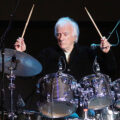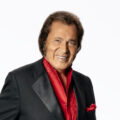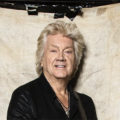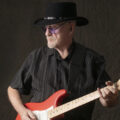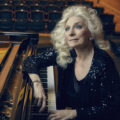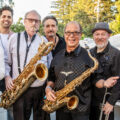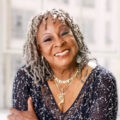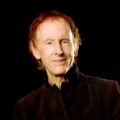Des Plaines Theatre destined to devour six decades of The Yardbirds’ bluesy rave-ups
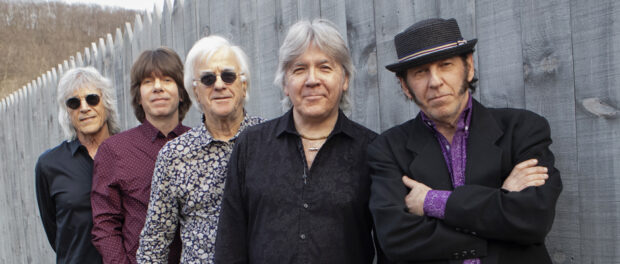 Photo provided by Arnie Goodman
Photo provided by Arnie Goodman
Whether covering the blues, dabbling in pop, laying the foundations for psychedelic and hard rock or perfecting rave-up instrumental breaks of any stripe, The Yardbirds were one of the more eclectic and electrifying acts to explode out of England in the 1960s.
Besides birthing the likes of future guitar gods Eric Clapton, Jeff Beck and Jimmy Page, singles such as “For Your Love,” “Heart Full Of Soul,” “Shapes Of Things,” “I’m A Man” and “Over Under Sideways Down” continue to set the bar for subsequent generations.
Chicago Concert Reviews reached out to original drummer Jim McCarty for a six-decade rundown on the Rock and Roll Hall of Famers, whose latest line-up comes to the Des Plaines Theatre on Thursday, April 18.
What do you have planned for the upcoming Des Plaines Theatre concert?
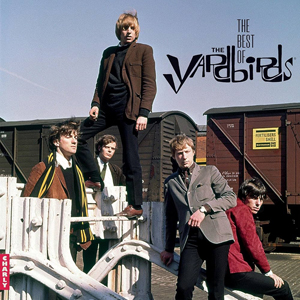 Jim McCarty: We’re gonna do an experiment for this tour. I’m gonna talk through the history of the group and then we’re gonna have back projections illustrating the story, plus we’re gonna have the band playing the songs as they come up. The people can expect a different sort of show with lots of information about what happened in the old days.
Jim McCarty: We’re gonna do an experiment for this tour. I’m gonna talk through the history of the group and then we’re gonna have back projections illustrating the story, plus we’re gonna have the band playing the songs as they come up. The people can expect a different sort of show with lots of information about what happened in the old days.
What do you recall about performing throughout Chicago over the decades?
McCarty: I remember playing in Chicago in the old days and it was at McCormick Place before it got burned down. We flew over from London and we did the gig the same night (laughs). We played with The Lovin’ Spoonful and The Turtles. We haven’t been back as much as I’d like because I like playing in that area, anywhere in Chicago. I think we played the club in Evanston, Space. That had to be five or six years ago and we played the Arcada Theatre one time, probably around the same time.
Who’s in the latest line-up you’ll be bringing to town?
McCarty: Well, it’s very good. We’ve had this line-up for maybe five years. The guitar player is from New York called Godfrey Townsend. He’s played with many famous people, like Alan Parsons, Jack Bruce and Kofi Baker. On bass, we’ve got Kenny Aaronson [from New York], who played with the New York Dolls, Billy Idol and even did a tour with Bob Dylan. On the lead voice, we have a guy called John Idan [from Detroit], who’s been in and out of the band for a long time. He sang on our last album, which was “Birdland” in 2003. Myke Scavone is playing harmonica. He was in The Ram Jam and The Go Boys from New Jersey.
“Birdland” is thus far your most recent studio recording. How do you feel that went?
McCarty: Yeah, we were pleased with it. It was a lot of work cause we recorded it in the U.S., Steve Vai’s studio in Hollywood, and it was a lot of fun. We had a lot of good players, including Steve himself, Slash [Guns N’ Roses], Brian May [Queen], Joe Satriani and lots of others. We were very pleased with it, [but] we were a bit disappointed in the sales on it. It didn’t do what we expected.
Why do you think The Yardbirds have always attracted such extraordinary musicians?
McCarty: I guess we were lucky and I guess we set the level high from when we started. Eric Clapton was one of the starting lead guitar players and we had to live up to that, but we were lucky to get the right players in the right place at the right time really.
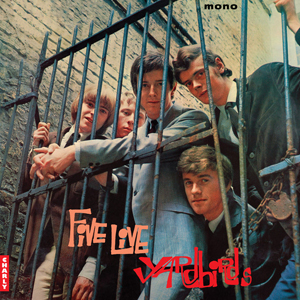 What was it like having Eric involved while he was in the developing stage?
What was it like having Eric involved while he was in the developing stage?
McCarty: Yeah, he was developing his style, but he always had that particular magnetism or that profile about him that attracted people. People liked to see him and he was very aware of it. He sort of played it up and he made sure he wore the right clothes. He always looked the part and I think he was different from the rest of the us.
Is it true he stepped away because he didn’t want to go towards the pop direction you were dabbling in at the time?
McCarty: Yeah, I think that was a big reason, although he did have issues with some of the guys in the band. He didn’t quite see eye to eye with Paul Samwell-Smith, the bass player, for some reason. It wasn’t totally that [musically]. It was some sort of band politics. I think he was always destined to be his own man, you know? He wasn’t the sort of guy who would toe the line in a group.
After just a short time, how was it having Jeff Beck take his place?
McCarty: It was actually through Jimmy Page that we got Jeff Beck because we wanted Jimmy to play. Jimmy was very busy doing sessions in London. He was one of the top guitarists on the records recorded in London and he didn’t want to join the band because he was doing so well, but he recommended what he called his understudy, who was a very good friend of his, Jeff Beck. We landed on our feet cause it was through Jeff that we produced what people remember of The Yardbirds’ sound, that sort of wild guitar sound, and feedback and all that stuff that Jeff was very good at.
Jimmy eventually wound up joining and there was a time when they were both in the band together. What additional distinctions did he bring?
McCarty: Yes, it was very exciting with the two of them, obviously. It’s like a rock and roll explosion. It either worked or it didn’t. Sometimes it was a bit too much. I think Jimmy brought more of a calmness to the band because Jeff was rather wild and sort of unpredictable. Jimmy was always pretty much the same temperament and he was easy to work with in those days.
Who do you consider some of the most notable artists influenced by The Yardbirds?
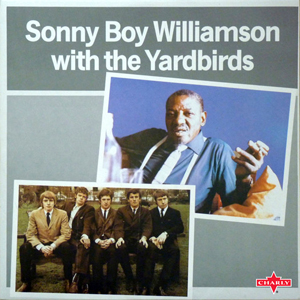 McCarty: Aerosmith and Alice Cooper I know, even Brian May. These people always talked very highly of us, and of course, Jimi Hendrix even. I mean there’s particular riffs, particular licks on the guitar he played that I think he got from Jeff. You could tell. There’s a lot of great musicians that were influenced [by us]. They all say that. They all admit that.
McCarty: Aerosmith and Alice Cooper I know, even Brian May. These people always talked very highly of us, and of course, Jimi Hendrix even. I mean there’s particular riffs, particular licks on the guitar he played that I think he got from Jeff. You could tell. There’s a lot of great musicians that were influenced [by us]. They all say that. They all admit that.
How did recording with Sonny Boy Williamson help estbalish the group?
McCarty: I don’t know if it did (laughs) because what happened with Sonny Boy was our manager, Giorgio Gomelsky, was involved in the National Jazz Federation of Great Britain and they used to bring Black musicians over to play these shows throughout the U.K. in big concert halls. One year, Sonny Boy came and Giorgio brought him down to see us. Giorgio put to him, “Oh, why don’t you stay over a bit longer and do some live shows with this band and maybe even a live recording?”
So we played some shows with him and we got together with him one day to rehearse for the live recording. We had a few songs down and we knew what we were doing. Then, of course, we went into the live recording and he played different songs (laughs). For some reason, he played different songs and nobody knew quite what he was doing, so the recording sounds a bit tentative from our point of view. But I guess he gave us some credence, a very great blues musician like him.
In what ways did your sound evolve well beyond the blues into other styles?
McCarty: We initially covered the blues songs we liked and we played them as they were. And we thought, “This is not quite what we want to do. We’d like to make it original and make it suit our particular audience.” So we experimented lots of things, like the rave-up. The whole band starts with the bass and doubles up the tempo. We go to a great crescendo and then go back down quiet again. We sort of made that up and we were famous for that. Then we changed tempos within songs and we had this wild lead guitar going on, which was usually Jeff Beck. It was just that we wanted to make it more and more different. Then we had ideas, like “Still I’m Sad,” from Gregorian chanting. We were always open to different types of music.
Do you have any reflections on the reasons the song “For Your Love,” in particular, has endured to this very day?
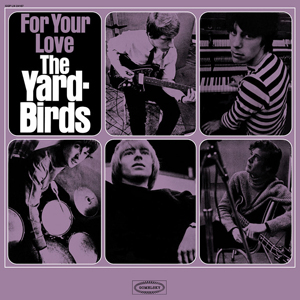 McCarty: No, I have no idea. It was always quite different and a very moody song, quite unusual. It had some magic about it, I guess, and it was nice to time change in the middle. I don’t know what keeps the music alive. It’s something, obviously, within the music that doesn’t really fade.
McCarty: No, I have no idea. It was always quite different and a very moody song, quite unusual. It had some magic about it, I guess, and it was nice to time change in the middle. I don’t know what keeps the music alive. It’s something, obviously, within the music that doesn’t really fade.
Even when The Yardbirds covered the classics, how did you manage to make them sound like your own?
McCarty: (Laughs) Yes, it’s funny, isn’t it? Maybe the studio had something to do with it. [Tiny Bradshaw’s] “Train Kept A-Rollin’,” we recorded in Sun Studios with Sam Phillips, who was the producer of Elvis [Presley]. I think maybe it had something to do with him. He got that old fashioned sound, which was great. And of course [the original] “Shapes Of Things,” that was recorded in Chess Studios, the famous blues studio in Chicago, so I think it might have been something to do with the American engineers.
What were some of the qualities that you feel led to the band being amongst one of the earlier acts to be inducted into the Rock and Roll Hall of Fame?
McCarty: Yeah, good point. Well, it was probably as you said. [We] influenced a lot of people, we were different and we had some great musicians. It was great cause we never really expected that to happen. We were always very self-derogatory. We never really had much confidence in what we were doing. We never thought it was really that good (laughs) and it was very nice to get inducted. We were inducted with some great people, with Johnny Cash for instance. He was our hero when we were at school. We used to play his songs in the school group. Jimi Hendrix was inducted that year and Booker T. & the M.G.’s. It was very nice for us to be inducted with all these great musicians.
There was a time when The Yardbirds were not active and you went on to many other projects. Can you tell us about those interim years?
McCarty: After The Yardbirds, Keith Relf, the singer and myself, formed a band called Renaissance, which was based around the keyboards just by chance, and we went in a different direction to The Yardbirds totally. I’m quite proud of that and that band carried on, although we weren’t actually involved with them. Annie Haslam, when she took it over, kept it going a long time. I think she’s only just finished. The last tour, I think, was only like a few months ago.
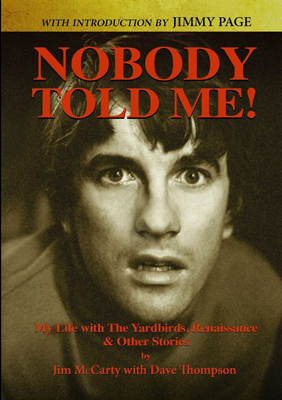 Then we formed under the name Illusion with the same sort of feel. The same sort of proggy, melodic thing was with Jane Relf, the singer, who was Keith’s sister. Then I’ve done some solo albums. I’m very pleased with my last one, which was called “Walking In The Wildland,” which I recorded in Toronto, Canada. Perhaps I shouldn’t say that in a U.S. paper (laughs).
Then we formed under the name Illusion with the same sort of feel. The same sort of proggy, melodic thing was with Jane Relf, the singer, who was Keith’s sister. Then I’ve done some solo albums. I’m very pleased with my last one, which was called “Walking In The Wildland,” which I recorded in Toronto, Canada. Perhaps I shouldn’t say that in a U.S. paper (laughs).
You even became an author in recent years. How would you describe each of your books, “Nobody Told Me” and “She Walks In Beauty”?
McCarty: I worked with Dave Thompson, who’s written a lot of rock and roll books, and he used to be a journalist working for “Record Collector,” so he was a great help. I did my autobiography, [“Nobody Told Me”], which took a while.
“She Walks In Beauty” was biographical, but also it was a lot to do with me talking about my ex-wife, who passed away about four or five years ago. I managed to have communication with her, so it’s more of a sort of psychic, mystic book. I talk about all of the instances where I managed to contact her and I got into that in a big way…so they’re slightly different, those two books.
The Yardbirds’ most recent project is the vinyl, “Psycho Daisies – The Complete B-Sides.” Do you have any opinion about that collection?
McCarty: I think they do a really good job. It was on a label called Demon in England. They’re a great label. They’re owned by the BBC. The packaging is wonderful and they do vinyl editions. I think they did that one for Record Store Day if I’m not mistaken…They’ve done some good things for us.
There’s also a live album on the way called “Mind The Gap.” Can you give us a preview?
McCarty: It’s an album recorded with this line-up, which is unusual cause we haven’t done it before. We recorded it over the last few years at some of the shows we’ve done.
If you were to put together a playlist of The Yardbirds, what would be a handful of key albums or tracks?
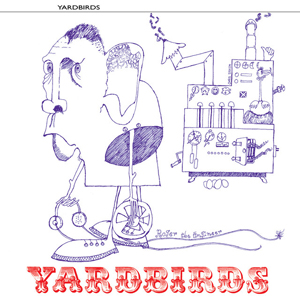 McCarty: “Roger The Engineer” was our first album we made as an album in the studio and I’m very proud of that. There was actually a documentary that came out a few months ago in the U.K. on Sky Arts about us and it was very interesting, because after the documentary, the album “Roger The Engineer” went into the album charts, the download charts (laughs).
McCarty: “Roger The Engineer” was our first album we made as an album in the studio and I’m very proud of that. There was actually a documentary that came out a few months ago in the U.K. on Sky Arts about us and it was very interesting, because after the documentary, the album “Roger The Engineer” went into the album charts, the download charts (laughs).
“Shapes Of Things” was one of my favorites and “Heart Full Of Soul.” There’s even a song we’re playing that we haven’t played for a long, long time. We never played it in this line-up and it’s one of the songs that we did as a record before “For Your Love.” It’s called “A Certain Girl.” It’s a song written by [Allen Toussaint under his pen name Naomi Neville] and it’s a cover, but that’s a good, fun song. I’d put that on it.
In what ways do you hope you and the band will be remembered by future generations?
McCarty: We’re not doing too badly now (laughs). We’re well remembered by people and it’s very encouraging because we see quite a lot of younger people in the audience these days. That’s lovely to think that younger generations are hearing our stuff and appreciating it. That’s really gratifying and nice!
The Yardbirds perform at the Des Plaines Theatre on Thursday, April 18. For additional details, visit TheYardbirds.com and DesPlainesTheatre.com.

